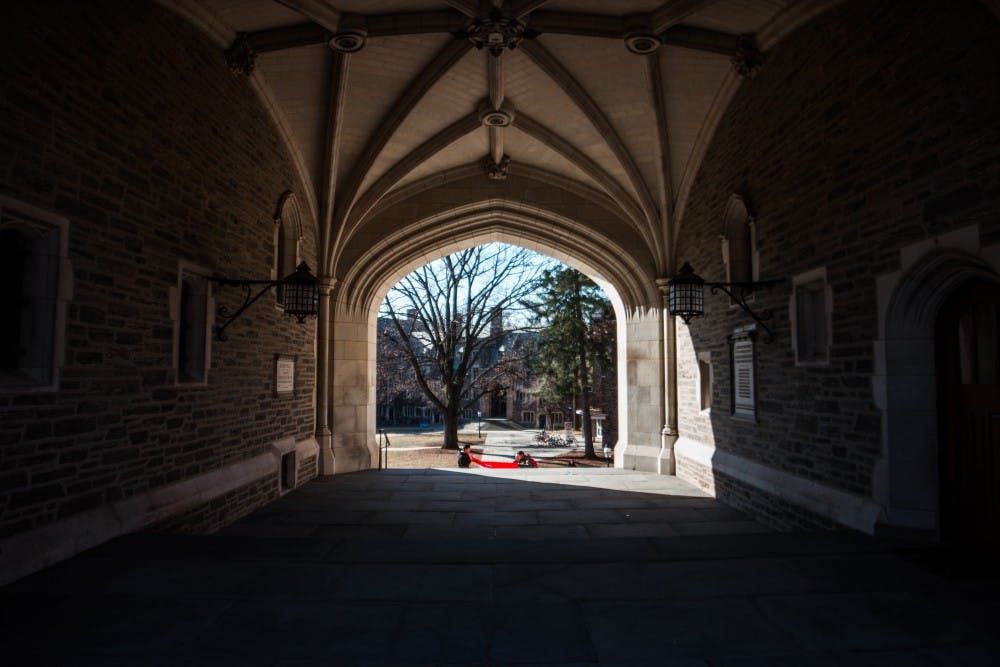My first memories of Princeton are the awe and pride I felt when I first gazed up at the Hogwarts-style turrets flanking Blair Arch; the muggy, swamp-like air of the final days of summer that made walking feel like wading through a swamp; the utter fear and excitement of entering the Rocky dining hall with a plate of D-hall food for the first time, alone.
I also remember the first time I was disappointed at Princeton.
During one of the first days of orientation, the Class of 2022 listened to a series of speakers who offered advice and words of welcome — the types of expertly-tailored generic speeches that people normally won’t remember after walking out the doors of the auditorium. I remember, however, one of the speakers stating something along the lines of, “and at your time at Princeton, you should always prioritize your academic work above everything else.” I remember first feeling surprised and then very upset. I kept hearing her statement in my head and could not fathom how someone at such a marvelous institution could neglect to mention anything about mental health to the first year students.
I see nothing wrong with placing emphasis on academic work. The purpose of a university is to learn, and learning requires a lot of grit, enterprise, and discipline. And if I’ve learned anything from my first semester, it’s that Princeton is a fantastic place — arguably the best place — to be a student. The university makes it so convenient to be a scholar that sometimes I worry I won’t be prepared for the petty inconveniences of the real world. And, I agree that we should prioritize scholarship over extracurricular activities, social life, and anything else that would inhibit academic success. However, I firmly believe we should never compromise our mental health.
People often disregard mental health as a real issue because it is not visible in the form of a wound or scar. This also makes it harder to treat, because there are few physical symptoms. It may be difficult to diagnose someone with mental health issues or a mental illness. And yes, there is a difference between the two. Lack of mental health awareness, is not necessarily endemic to Princeton — it is an institutional problem that affects most universities.
At the same time, it is important to remember everything to be grateful for as a student at Princeton. Practicing gratefulness is also important to maintain good mental health.
During the semester, there are times when it becomes especially difficult to remember the opportunities we most appreciate. A good habit to combat depressed thoughts and feelings is to write down three things to be grateful for at the end of the day, even if they are frivolous as “I am grateful for Blair Arch.” Although there are times when I still struggle to maintain my mental health, I’ve learned the importance of balancing both my academic work and my mental health. I know that I am much more productive when I take care of my health. When I feel my mind beginning to slip, I set aside time to reorient myself. I hope to eventually reach a point when I don’t have to wait until I feel overwhelmed before I take action to take care of my mental health.








